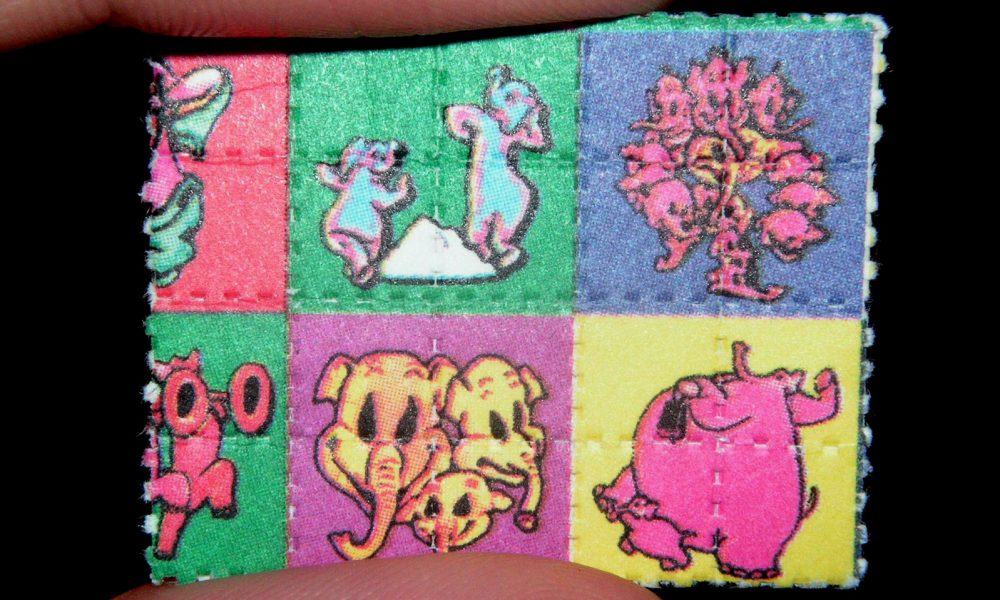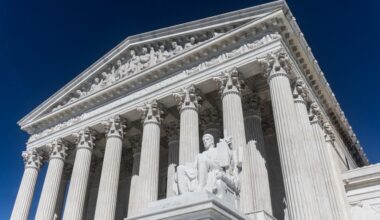The Drug Enforcement Administration (DEA) is moving to place a series of psychedelic compounds into the most strictly prohibited list of controlled substances—and advocates and researchers are making clear their opposition to the proposal.
About 90 people have submitted official feedback to the agency so far after the scheduling proposal was published in the Federal Register last month. The public comment period ends on February 14.
Advocates and researchers are challenging the logic behind DEA’s planned ban of five tryptamines: 4-OH-DiPT, 5-MeO-AMT, 5-MeO-MiPT, 5-MeO-DET and DiPT. The agency wants to place each of the psychedelic compounds in Schedule I under the Controlled Substances Act (CSA), the same category as drugs like heroin, marijuana and LSD.
DEA said that it took into account research and recommendations from the U.S. Department of Health and Human Services (HHS) which found that “these substances are being abused for their hallucinogenic properties,” as well as its own eight-factor analyses, before it made the scheduling proposal.
DEA said in last month’s notice that agencies have identified cases of hospitalizations related to the use of two of the tryptamines. It was only able to cite one death where one of the compounds, 5-MeO-AMT, was found in the person’s system, in addition to alcohol and an antidepressant. DEA acknowledged that “it is unclear what role 5-MeO-AMT played in the death.”
“Based on consideration of the scientific and medical evaluation and accompanying recommendations of HHS, and on DEA’s consideration of its own eight-factor analysis, DEA finds that these facts and all relevant data constitute substantial evidence of potential for abuse of 4-OH-DiPT, 5-MeO-AMT, 5-MeO-MiPT, 5-MeO-DET, and DiPT. As such, DEA hereby proposes to schedule 4-OH-DiPT, 5-MeO-AMT, 5-MeO-MiPT, 5-MeO-DET, and DiPT as controlled substances under the CSA.”
In general, advocates have been critical of DEA scheduling decisions. The fact that cannabis and other entheogenic substance remain Schedule I drugs—meaning the agency determined it has no medical value and a high abuse potential—has particularly called into question DEA’s judgment in these matters.
That position is reflected in the majority of the comments submitted to the agency on the proposal to date.
“Actions such as this are completely misguided and actually contribute negatively to the so called war on drugs. If these substances are banned they will be replaced by more and more obscure and convoluted chemicals with even more questionable safety profiles,” one person said. “Please stop and think about the potential ramifications of a decision like this.”
A person who identified themself as a military veteran said that he believes “these compounds should be kept legal so they can be researched.”
“Reports of psychedelics in therapy are extremely promising for depression, anxiety, addiction, and other mental health disorders like PTSD,” the person said. “As a veteran that suffers from PTSD, who has many other friends suffering from PTSD, some of whom have committed suicide, I am hopeful that one of these compounds will one day be able to end our suffering for good. But that won’t happen without study and research.”
“I’m appalled and frankly disappointed that the US DEA can write these documents about these compounds having abuse potential worthy of Schedule I, while drugs like opioids and methamphetamines are still at a lower scheduling,” one comment reads. “There is scientific evidence that certain tryptamines actually have a reduced abuse potential, especially those similar to psilocin.”
“These substances should not be scheduled. It would be a waste of time and my tax money to pursue something that has one documented death with 5-MEO-AMT nearly 18 years ago, mind you the article does not go into detail why this has occurred,” another says. “More people have been killed by shaking vending machines, 37, yet there is no movement to ban soda machines.”
These are just a few examples, but the comments are overwhelmingly against DEA’s proposed scheduling action.
Matt Baggott, a neuroscientist and CEO of the pharmatech company Tactogen, also weighed in on the agency’s proposal. He noted that HHS provided DEA with its analysis of the compounds a decade ago, which “raises the question of whether this scheduling is in response to the increased interest in psychedelic medicine.”
Worth noting that HHS provided DEA with an analysis of these compounds in 2012 and DEA failed to act until now. This raises the question of whether this scheduling is in response to the increased interest in psychedelic medicine.
— Matt Baggott (@mattbagg) January 14, 2022
Meanwhile, a Seattle doctor specializing in end-of-life care filed a formal petition with DEA last week challenging the government’s Schedule I classification of psilocybin, the main psychoactive component of psychedelic mushrooms.
The petition requests the agency to reschedule psilocybin as a less-restricted Schedule II drug, pointing to its relatively low potential for abuse and “exceptional promise in relieving debilitating symptoms in those with intractable and otherwise untreatable illness,” including the severe anxiety and depression that can result from a terminal illness.
Attorneys for Dr. Sunil Aggarwal filed the federal petition almost immediately following a decision Monday by the U.S. Court of Appeals for the Ninth Circuit that dismissed on procedural grounds a lawsuit Aggarwal and two of his terminally ill cancer patients filed against DEA last year. In that case, plaintiffs argued they should be allowed legal access to psilocybin under state and federal right-to-try laws, which are intended to let patients with terminal conditions try investigational medications that have not been approved for general use.
Separately, a bipartisan group of members of Congress sent a letter last month urging DEA to let terminally ill patients have access to psilocybin. The agency, lawmakers said, is “obstructing access to psilocybin for therapeutic use consistent with the letter and intent Right to Try (RTT) laws.”
Congress and 41 states have adopted right-to-try laws, which allow patients with terminal conditions to try investigational medications that have not been approved for general use. Lawmakers said that DEA “has failed to abide” by the law.
DEA has increased production quotas for the production of certain psychedelics like psilocybin in an effort to promote research, but its scheduling decisions have continued to represent obstacles for scientists. And the agency is currently facing criticism from advocates and researchers over a proposal to place several psychedelic substances in Schedule I under the CSA.
Photo courtesy of Wikimedia.
The post DEA Faces Backlash Over Proposed Scheduling Of Five Psychedelic Compounds appeared first on Marijuana Moment.
Medical Disclaimer:
The information provided in these blog posts is intended for general informational and educational purposes only. It is not a substitute for professional medical advice, diagnosis, or treatment. Always seek the advice of your physician or other qualified healthcare provider with any questions you may have regarding a medical condition. The use of any information provided in these blog posts is solely at your own risk. The authors and the website do not recommend or endorse any specific products, treatments, or procedures mentioned. Reliance on any information in these blog posts is solely at your own discretion.






